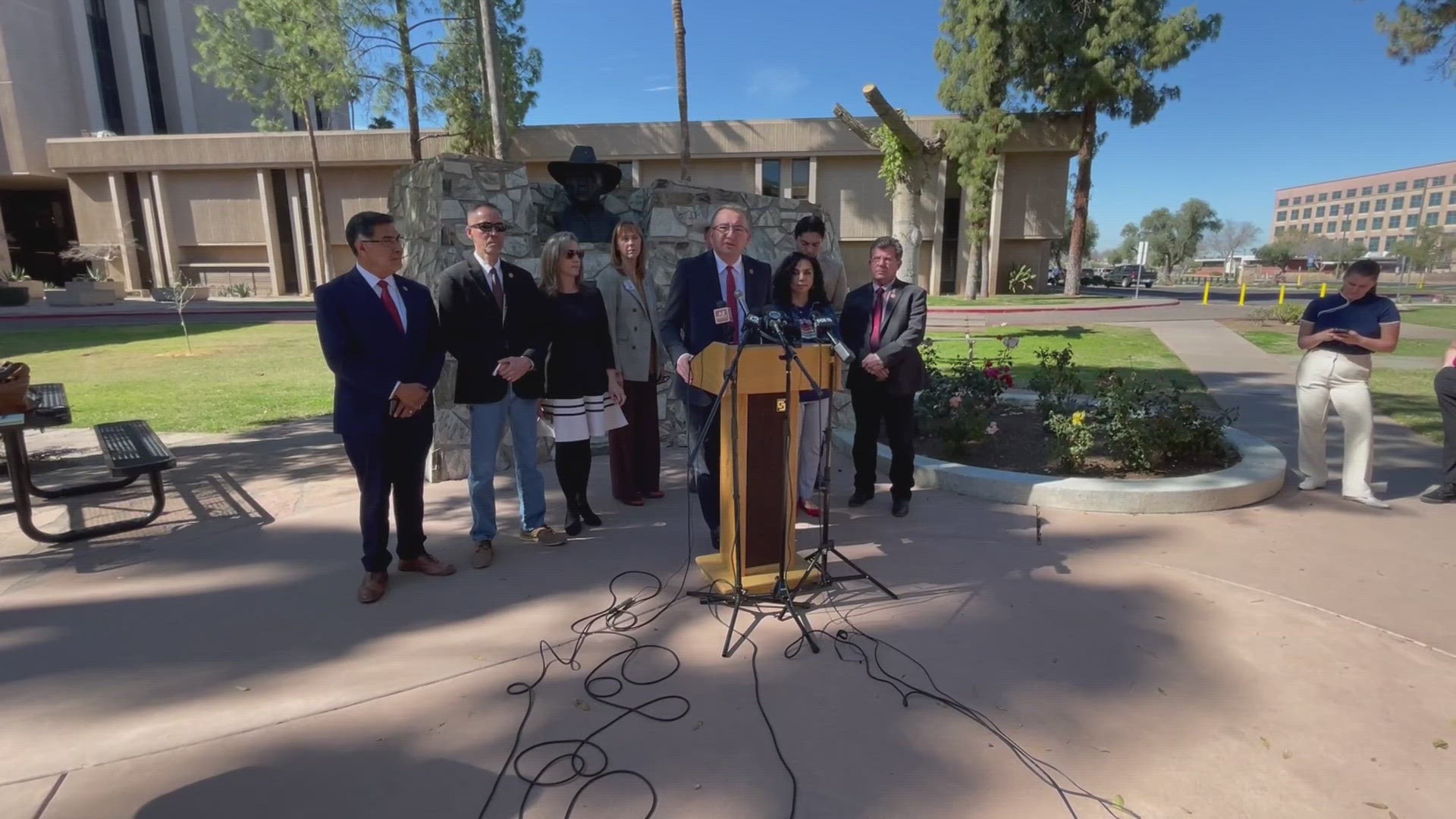PHOENIX — Republican lawmakers want Arizona voters to give the go-ahead to a new crackdown on undocumented immigrants.
The new proposal, HCR 2060, could make it harder for undocumented people to find work or receive benefits from city and county governments.
"Our message to illegal immigrants is simple," Republican House Speaker Ben Toma said at a news conference Monday. "If you want to take advantage of of Americans go somewhere else."
Toma's resolution would:
-Require towns, cities and counties to check a recipient's immigration status before issuing benefits like public assistance or business licenses. A state law dating to 2007 already requires business to use the federal E-Verify system to check job applicants' immigration status.
-Expand the E-Verify law by requiring employers to check the immigration status of contractors and subcontractors, an expansion of current law. This could cause headaches for Arizona homebuilders, which historically have relied on subcontractors.
Employers who violate the law could be fined up to $10,000.
Spencer Kamps, vice president of legislative affairs for the Home Builders Association of Central Arizona, said via email, "We are researching the legislation and don't have a comment at this time."
Phoenix Mayor Kate Gallego provided this this statement:
“I fear that this legislation will make Arizona’s homelessness challenges even worse, because it creates bureaucratic hurdles to getting U.S. citizens who are living on the streets without an ID access to shelters and housing. Those who are in our country without legal status generally get help elsewhere—from their families or non-government organizations—so it’s difficult to see what this bill does other than make our homeless challenges harder to solve.”
A spokesman for Maricopa County, the state's largest county, declined to comment.
A House committee advanced the resolution to the full House on Monday on a party-line vote.
Toma's resolution would have to be referred to the November ballot by the Republican-controlled Legislature. Democratic Gov. Katie Hobbs can't veto it.
"She would veto this," said State Rep. Marcelino Quinonez of Phoenix. "So they're trying to bypass the governor, and that's not the function of this institution."
If the new checks of immigration status were approved by voters in November, they would take effect in five years.
"This is what voters care about right now," Toma said. "That's why we're addressing it."
Toma is a candidate in the crowded Republican congressional primary in the West Valley's Eighth District.
He reluctantly answered a question about Congressional Republicans' rejection of a bipartisan agreement on border security ("There are issues with the bill. Let's leave it at that," he said.)
About two hours after the news conference ended, Toma's congressional campaign sent a fund-raising email claiming, "I just introduced one of the toughest anti-illegal immigration laws ever written in the Arizona State Legislature."
Toma's proposal, amid a a record surge in migrant encounters at the Southwest border, is reopening a turbulent chapter in Arizona history.
A series of anti-immigration laws in the early 2000s was capped by the toughest immigration law in recent memory, SB 1070, signed by Republican Gov. Jan Brewer in 2010.
"It was just throwback to 1070 days (when) I was a college student," said Jose Patino, now a vice president of Aliento, which advocates for young migrants and DACA recipients.
Patino said this moment was different, coming after a pandemic when undocumented immigrants proved themselves.
"The people who were essential workers were undocumented immigrants... and they were applauded," Patino said. "But as soon as we got out of it, they're discarded."
A 2007 Arizona law requires employers to use E-Verify to check the immigration status of new hires.
The law was upheld by the U.S. Supreme Court in 2011. A year later, the same court largely struck down SB 1070.

